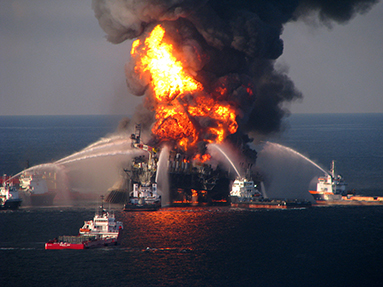Hard to believe that 13 years ago the offshore oil and gas industry changed forever. On April 20, 2010 the Deepwater Horizon drilling rig exploded, later sank. “Approximately 134 million gallons of oil had spilled into the Gulf, the largest offshore oil spill in U.S. history.”
One recent LinkedIn comment suggested that nothing had changed regarding field operation safety. The right referred to management’s position as SAC (Safety as Convenient). In other words, business as usual. This may be the case for some organizations but I think the larger issue is the industry transformation to one of a Culture of Safety aka Safety Culture.
In the immediate aftermath, this pundit and his colleagues were directly involved in this change process. Working with the aerospace industry, we put forth new ways of managing the work process to assure field processes were completed properly and in keeping with regulatory requirements. As part of this effort, we worked with Human Factors experts to help process organizations to sustain High Reliability.
We believe across a number of fronts the sector has made a lot of progress. Moreover, in 2015 this pundit was invited to present ‘oil & gas lessons learned’ at the International Atomic Energy Agency Technical Meeting on Developing Improvement Programmes for Safety Culture in Vienna, Austria.
The Center for Offshore Safety and its Good Practices and Safety and Environmental Management System (SEMS) Certification process has been widely accepted. Additionally, deepwater well containment rapid response systems such as the Marine Well Containment Company (MWCC) are in place.
There is always room for improvement; however, it is fair to say the industry has taken the Safety Culture seriously and has made great strides.
Transformational Tools
There are a wide variety of tools readily available for organizations interested in adopting a Safety Culture. These include the Bureau of Safety and Environmental Enforcement’s (BSEE) Safety Culture Policy.
A Safety Culture is not limited to a single sector or even to private enterprises. Other examples include NASA, Healthcare and SHRM among others.
In addition to our 2014 seminal book on the subject, IMPLEMENTING A CULTURE of SAFETY: A ROADMAP FOR PERFORMANCE BASED COMPLIANCE we offer a number tools designed with industry experts to assist with this transformation. These include:
- Safety Culture Serious (training) Game
- Culture of Safety Maturity Self Assessment
- Proven Method of Assessing the Value of a Digital Oilfield Investment
Finally, our new book Smart Manufacturing: Integrating Transformational Technologies for Competitiveness and Sustainability can help as well even if your organization is not a manufacturer.
If your organization does not have a Safety Culture, why not?
For More Information
The photograph source is NOAA.
Please note, RRI does not endorse or advocate the links to any third-party materials herein. They are provided for education and entertainment only.
See our Economic Value Proposition Matrix® (EVPM) for additional information and a free version to build your own EVPM.
The author’s credentials in this field are available on his LinkedIn page. Moreover, Dr. Shemwell is a coauthor of the just published book, “Smart Manufacturing: Integrating Transformational Technologies for Competitiveness and Sustainability.” His focus is on Operational Technologies.
“People fail to get along because they fear each other; they fear each other because they don’t know each other; they don’t know each other because they have not communicated with each other.” (Martin Luther King speech at Cornell College, 1962). For more information on Cross Cultural Engagement, check out our Cross Cultural Serious Game. You can contact this author as well.
For more details regarding climate change models, check out Bjorn Lomborg ands his latest book, False Alarm: How Climate Change Panic Costs Us Trillions, Hurts the Poor, and Fails to Fix the Planet.
Regarding the economics of Climate Change, check out our recent blog, Crippling Green.
For those start-up firms addressing energy (including renewables) challenges, the author can put you in touch with Global Energy Mentors which provide no-cost mentoring services from energy experts. If interested, check it out and give me a shout.

